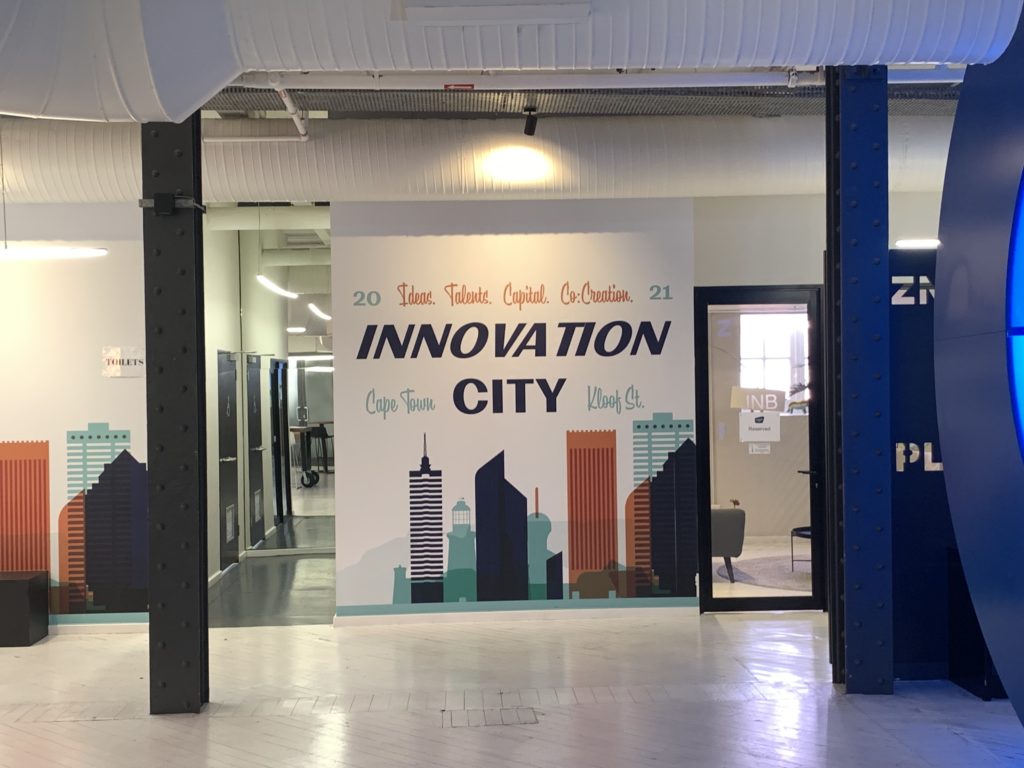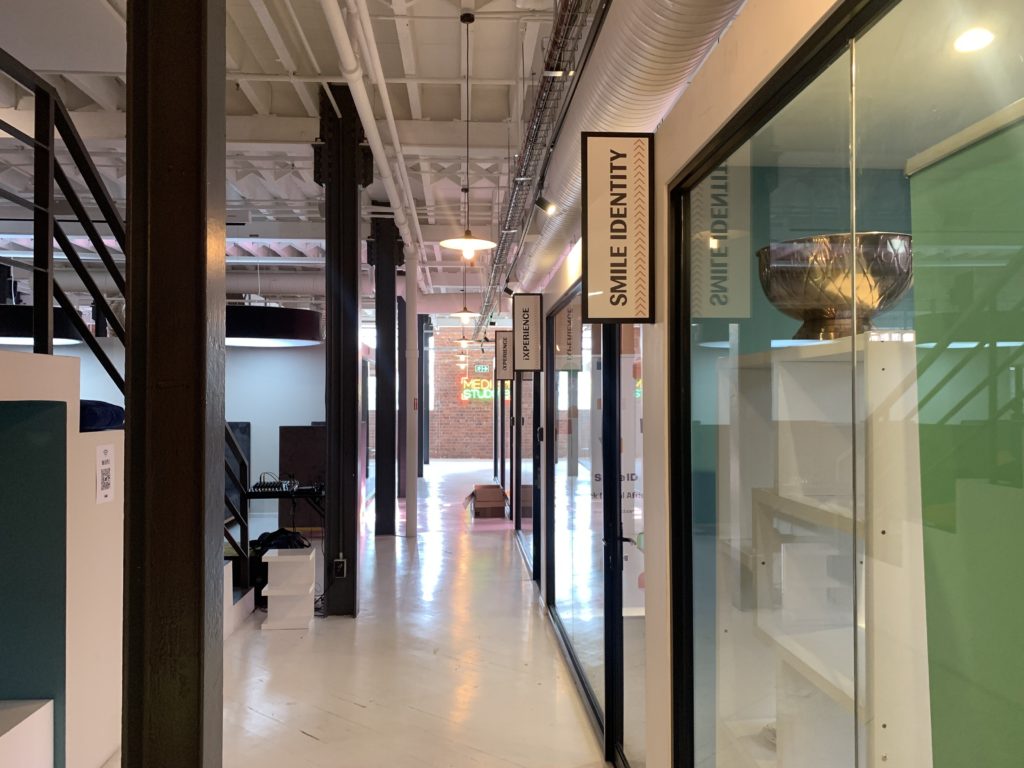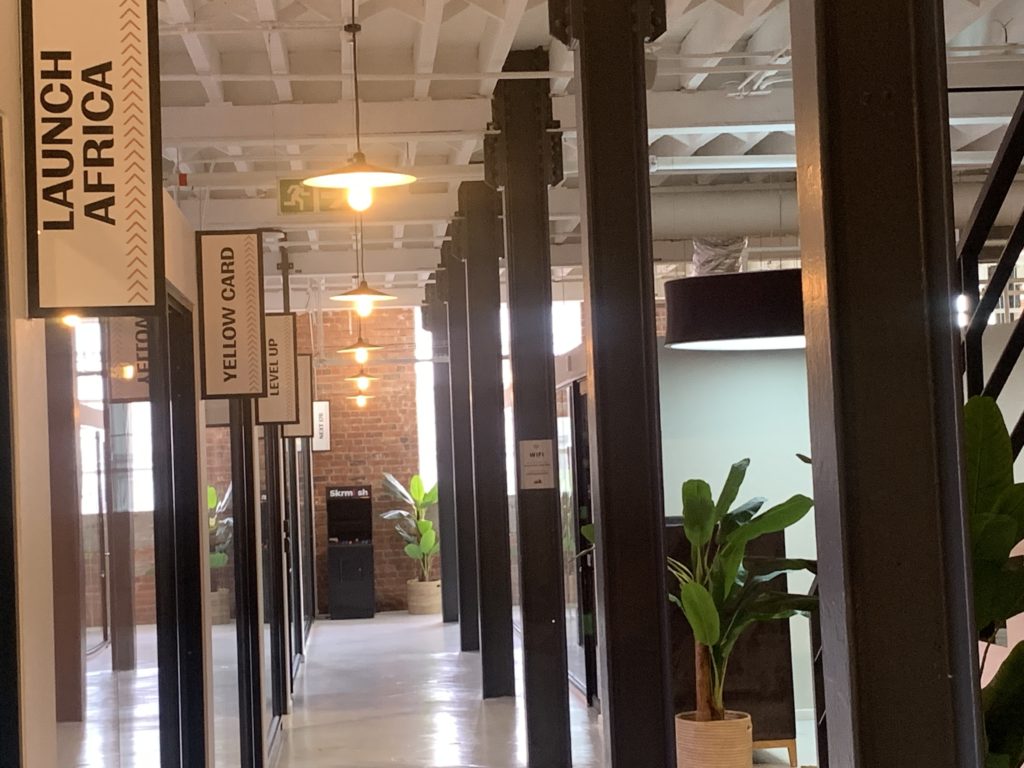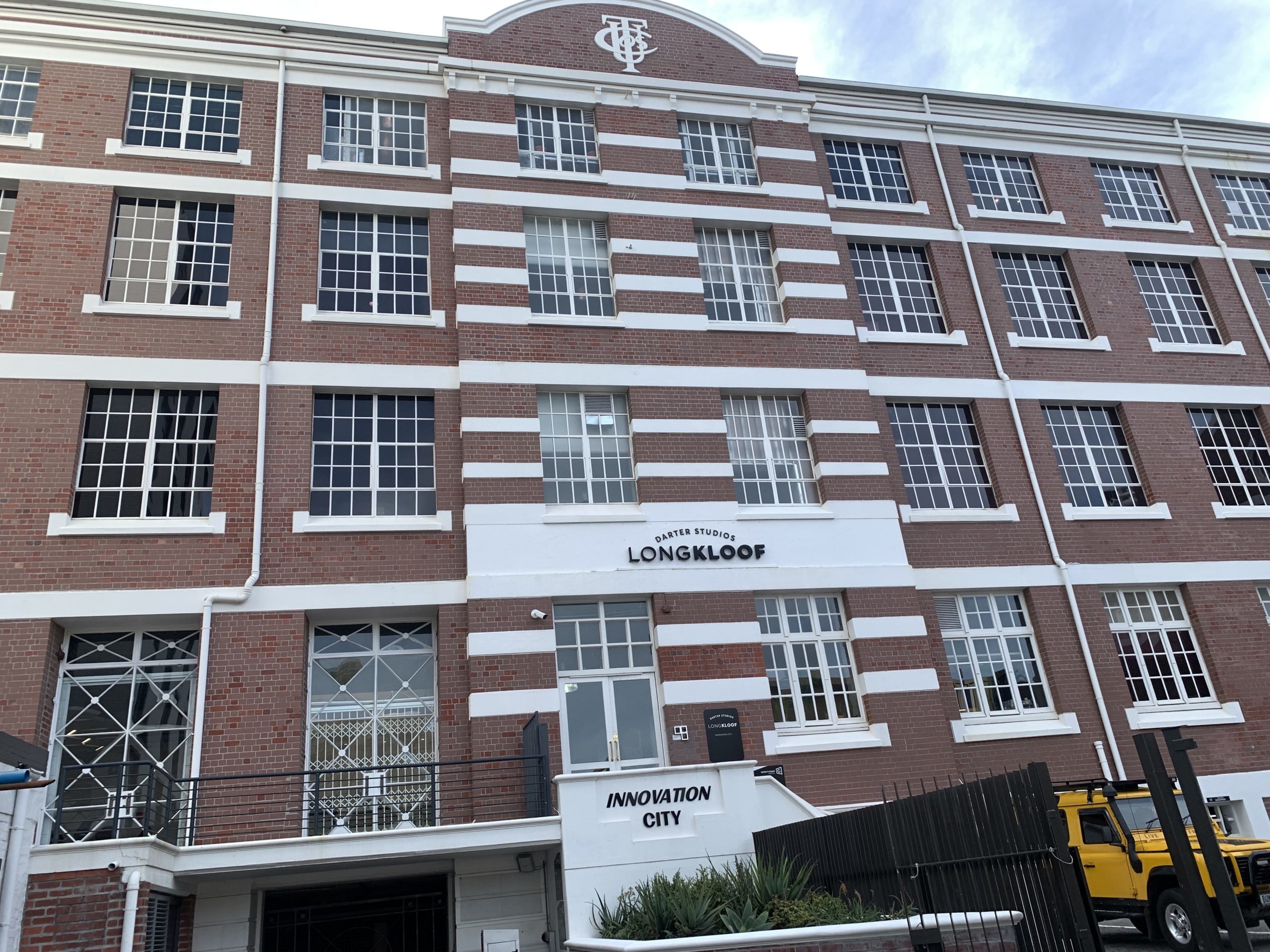Taking a sharp turn westwards from Kloof Street onto Darter Road in City Bowl, Cape Town, one’s eyes are immediately met by an expansive three-storey building. From the outside, it looks like an American-style secondary school, complete with red brick and an unusual amount of windows. Stepping inside, one is met by 3,700 square metres of a diverse congregation of South Africa’s tech ecosystem stakeholders.
Innovation City, founded in November 2021, currently houses 10 early-stage startups, 17 high-growth-stage startups, 18 scaleups (including a Swedish unicorn) and nine venture capital firms. Numerous corporations, including Old Mutual, Guardrisk PepCo’s fintech division and MTN’s Ayoba team, are stationed there, bringing the total number of entities in Innovation City to around 65. Innovation City was founded by Stephan Ekbergh and Kieno Kammies, a prominent South African radio personality. Kammies describes the facility as more of a “business enablement hub” than a coworking space.

Cape Town is undoubtedly South Africa and the southern Africa region’s tech hub, with founders, investors, tech talent, corporates, and enthusiasts residing there. However, the city’s extensive tech ecosystem means that stakeholders are scattered across the coastal city, limiting chances of collaborative synergies. Innovation City’s value proposition is to bring all those together in one focal point.
“When planning the facility, the analogy was that of Innovation City acting as an operating system which provides interoperability between ecosystem stakeholders who would reside here,” Kammies told TechCabal.

MTN’s Ayoba superapp team was one of the first tenants of Innovation City when the facility opened. The Ayoba super app is currently available in over 22 African markets and has over 35 million users. “The ability to know what’s trending in tech, and who is building exciting products, is not easy to access from anywhere else,” says Sheila Yabo, head of ecosystem development at Ayoba. According to Yabo, in their time in the hub, the Ayoba team has been able to collaborate with various startups to run hackathons as well as events to push out Ayoba’s value proposition.
For startups, Innovation City provides a breath of fresh air to the co-working space model which they say does not provide much value in terms of cultivating synergies between various ecosystem elements. One of these startups is Proply, a proptech startup founded by Wesley Roos. Properly, which has so far raised an undisclosed pre-seed round, uses predictive analysis to give real estate investors insights into how a residential property could perform from a short and long-term rental perspective, allowing them to make informed decisions on the returns their portfolio can garner. After hopping around the different co-working spaces in Cape Town, Proply moved to Innovation City in November 2023, citing the facility’s collaboration-enabling environment as a major motivating factor. “In my time here, I have met very good mentors and advisors as well as VCs who helped us map out our fundraising journey,” Roos told TechCabal.

Even the more established startups at the facility, some of which include Yellowcard, the crypto exchange which has raised $57 million so far, and Smile ID, the digital identity verification startup which raised $20 million last year, speak highly of the value proposition of the Innovation City ecosystem. Dustin Strydom, director of customer success at Smile ID, says that the company decided on a residence at Innovation City to connect with various South African tech stakeholders. So far, they have seen a return on investment. “The events here were vital in helping us connect with investors and the management team also made introductions to various stakeholders who are vital to our mandate,” said Strydom.
Over the last two years, with the impacts of the funding downturn having been felt in the African ecosystem from Cairo to Cape Town, access to investors has been crucial to startups, whether for cheques or advice on how to traverse the troubled waters. At Innovation City, some of the nine VC firms that have residence include prominent pan-African firms like E4E Ventures and Launch Africa Ventures. Zachariah George, managing partner at Launch Africa, told TechCabal that in their time at Innovation City, the firm has been able to capitalise on the hub’s extensive and diverse network of residents to execute its mandate. “Through events and stakeholders present here, [Innovation City] is a focal point for ecosystem stakeholder conversations which helps our process significantly in terms of sourcing deal flow and meeting fellow investors,” George told TechCabal.

Cape Town’s diverse tech ecosystem means that although cross-collaboration is key in driving innovation, it is rare to find all stakeholders within a few metres of each other. Through trying to solve this problem, Innovation City has catalysed synergies between the different stakeholders residing in the facility. Although the lack of ecosystem stakeholder collaboration is a countrywide and even continent-wide problem, Innovation City has no plans to build more franchises. “I believe there are people both in South Africa and the continent who also have great models which have the proper local context and we aim to partner with them instead of trying to reinvent the wheel,” Kammies said.
Whether it was by design or by coincidence, the fact that the Innovation City building has unusually many windows is perhaps a fitting metaphor, symbolising the many tech points of view and perspectives which call the facility home.




















